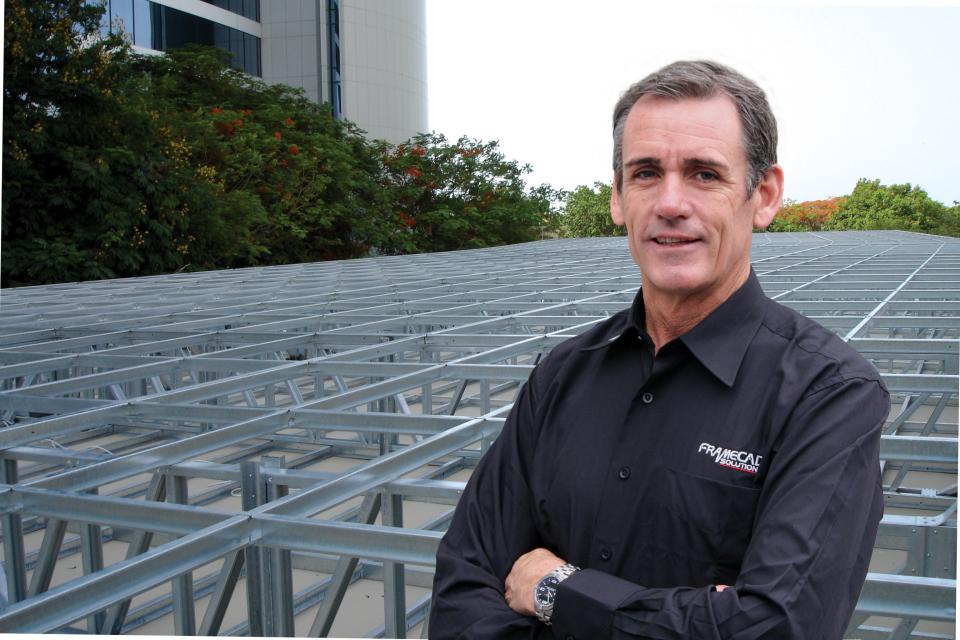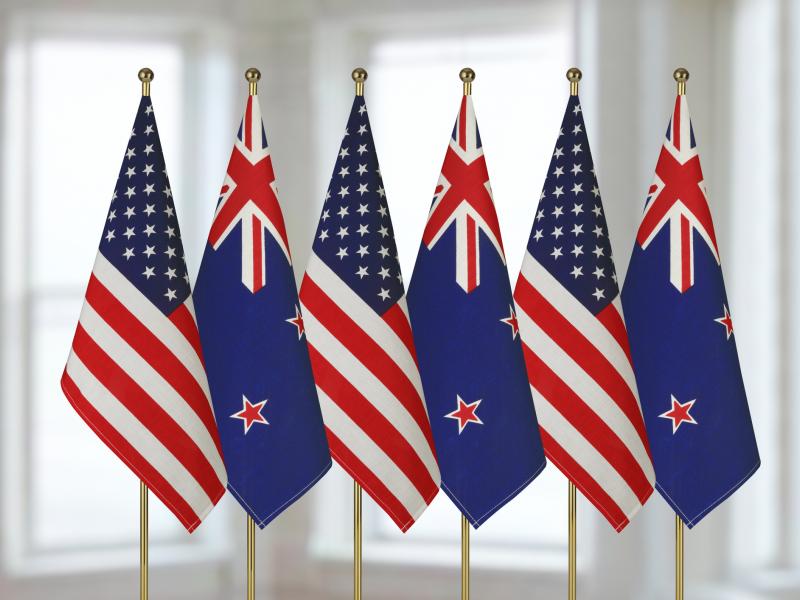Entering the US market as a Kiwi exporter is an expensive, long-term operation, made easier by learning from the experience of those who went before.
“The US market is working very well for us now,” reports Mark Taylor, president of metal frame technology company Framecad - a company which earns 95 percent of its revenue off-shore, a large percentage of it in the US.
“We did a lot of homework before we entered the US market, but have to admit that some lessons only hit home later.”
Framecad provides the building industry with specialised design software that interfaces directly with steel roll formers to produce custom made, pre-cut and drilled steel trusses, labelled for easy assembly. The company also supplies specialist tools and assembly materials, as well as compatible building material such as insulation and cladding.
Framecad’s comprehensive building system enables customers to design and build steelframe structures that are easy to design using online software and easy to build without expert tradesmen. The lightweight, durable structures are quick to construct, cost-efficient and can meet a wide range of international building standards.
“The US is one of the major markets we wanted to enter,” says Taylor. “Apart from its own vast potential, it is also the place other countries in the Americas look to for leadership. Having a presence in the US is a gateway to Central and South America as well.”
The company appointed its first US representative in 2007, and in 2012 opened a fully fledged US office in Dallas.
“The first thing about the US market from a Kiwi perspective is just how big it is. As a New Zealand manufacturer, it’s not feasible to service the entire US market. Don’t bite off more than you can chew. You have to narrow your target dramatically, honing in on a geographic region and within that probably on a particular market segment,” says Taylor.
Given that Framecad’s business is around the construction of lightweight steel building frames, the company’s product provides a natural fit in the cyclone belt and also in the termite belt, where wooden frames don’t perform as well.
Apart from the geographic focus, Framecad also decided to pick the most promising market segments, namely providing accommodation for the oil and gas mining industry, as well as the US military. Framecad has already had significant contracts from both the US Army and Navy, and is capitalising on the building boom that accompanies the oil boom in the Dakotas.
Pick your base wisely
“As Kiwis, we get irked when foreigners lump us with Australia. It would be prudent for us to bear this in mind when we approach the US as if it were all the same place. The reality is that it’s like 51 different countries,” says Taylor.
With every state having different tax regimes and business regulations, the choice of where to establish a base is very important.
“Just looking at the tax implications alone is a mission. Base your business in California and Florida, and they may want to tax you on your worldwide income,” says Taylor.
“As a manufacturer, once you have equipment and warehouses, your insurance costs can skyrocket very quickly. So find out what the requirements are in the state you want to enter.”
Taylor feels that it’s easy to make the mistake that because Americans speak English, they’re like Kiwis.
“Forget they speak English, you have to treat the US as you would Europe or any other foreign market. The culture of doing business is very different to what we’re used to.”
The most striking difference is in how people talk about themselves and the opportunities that await. “You must learn to interpret what American businessmen tell you. The opportunity is seldom quite as fantastic as they describe it, and unfortunately their capabilities may not be quite what they claim either,” says Taylor. “It is not that people seek to mislead you, but just that we’re used to a much more self-deprecating style of communication.”
A Kiwi company hoping to be taken seriously has to learn to play the same game, promoting themselves much more noisily than they may be used to. “Don’t be shy about trumpeting the value of what you offer," says Taylor. "You have to have an excellent elevator pitch to have any impact.”
The other aspect of the US business world that Kiwis may find strange is how formal many of the approaches are. “People are quite deferential, using formal forms of address. If you go in there treating potential business partners as if they were mates, you may be making life hard for yourself.”
Employ locals
The best way to negotiate the differences between the New Zealand and US business culture is to employ local talent says Taylor.
“It definitely is worth the extra time and cost to find a top class business development manager to drive your success.”
Finding the right person is only half the struggle, though. Employment practices in the US are very different from New Zealand. “People expect to be given a benefit package and an annual bonus. But finding out what passes for ‘normal’ in the market can be challenging, as many people have not ever taken the trouble to understand exactly what they get from their employer.”
One thing that does make it easier for employers, is that in many states it is possible to let staff go almost at will, with little or no need to provide reasons.
“My advice to new entrants in the US market would be to find the best people you can. Communicate clearly with them. We’ve found time and again that nothing beats a personal meeting. Once you’ve educated them on your offer, leave them to go for it.
“Exporting to the US is a massive challenge. We can make things easier on ourselves and our fellow Kiwi exporters by collaborating as far as possible. We have to help each other, take advantage of any networks we can tap into,” says Taylor.
“For our part, we’re happy to share whatever useful knowledge we’ve picked up during our US market entry.”





